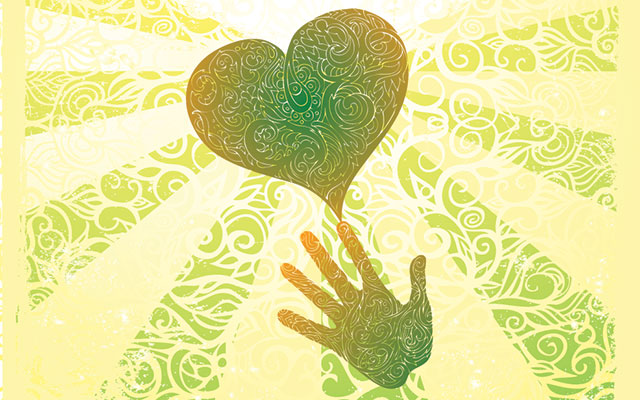On a recent Saturday, a headline in the Wall Street Journal caught my eye. “The Empathy Trap,” it warned, can force us into making poor decisions: “In politics and policy, trying to feel the pain of others is a bad idea. Empathy distorts our reasoning and makes us biased, tribal, and often cruel.”
Woah. As someone who values empathy as a personal trait — and who feels that empathy is something all of us (including politicians) could use a bit more of these days — I was stopped in my tracks. The author, Yale psychology professor and emotional-empathy researcher Paul Bloom (who happens to be promoting his new book, Against Empathy), anchored his arguments in plenty of psychology and neuroscience research. Still, I was left unconvinced that his thesis (or the Journal’s provocative title) is particularly helpful.
The Case Against Empathy
After defining empathy as our innate ability to tap into and share the emotions of another (and after cursorily acknowledging the value of this when it comes to things like sports, sex, and con-artistry), Bloom makes some interesting points.
First, he argues, empathy is biased. He cites studies demonstrating that we feel more empathy for those who are superficially like us (by ethnicity or affiliation, for example). We feel more empathy for someone with whom we’ve cooperated than for someone with whom we’ve competed. And if we believe that a person is responsible for his or her own plight, we tend to extend even less empathy.
Sure enough, I think. I’ve observed biased empathy in others and in myself.
Then Bloom contends that empathy causes us to “ignore obvious practical calculations” — in other words, make irrational decisions even as they subvert our good intentions. To illustrate this, he cites research in which people prompted to empathize with an “identifiable victim” donated more readily toward that victim’s cause than toward another that represented a broader or more urgent need.
Yep, I think. I’ve made giving decisions based more on the emotion I feel for an individual’s suffering than for the objective level of need.
Our empathy gets us into policy-level trouble, Bloom argues, when politicians (and voters) overidentify with the few who suffer ill effects from policies that benefit the greater whole of society. As examples, he offers our empathetic support for the child who gets sick from a vaccine, or for the business owner whose operations go under due to taxes and regulations. “But we are relatively unmoved when it comes to the suffering that such policies might avert,” he writes.
It gets worse. In moral and political debates, “our positions often reflect our choice of whom to empathize with,” he says. Do we empathize with the unarmed black man killed by a police officer during a routine traffic stop or with the cop whose life is regularly threatened in the line of duty? “One can always find someone to empathize with on either side of the issue,” he writes. And in situations like this, he argues that empathy leads to hostility and division.
“Given all these problems with empathy,” Bloom asserts, “it’s a good thing that we can use rational deliberation to override its pull.”
Empathy vs. Compassion
It is at this belated moment in the article that Bloom finally introduces the topic of compassion (“rational compassion,” to be specific), and elucidates the difference between compassion and empathy. Empathy describes the experience of emotionally sharing another’s pain; compassion “is characterized by feelings of warmth, concern, and care for others, and a strong motivation to improve the other’s well-being.”
Lest you think Bloom is splitting hairs, he notes that these responses have their neurological origins in different areas of the brain. In scans, people who had undergone empathy training showed activation of the insula of the brain, home to our emotions; those trained in compassion via lovingkindness meditation showed activation of the ventral striatum, an area associated with reward and motivation.
Empathy and compassion are distinct mental activities with different emotional outcomes for the person experiencing them (negative versus positive feelings). And when it comes to influencing behavior, Bloom argues that compassion leads to kinder actions. In his own research, Bloom scored study participants on two different scales — one for empathy and one for compassion — and found that high compassion scores predicted charitable giving more often than high empathy scores.
His conclusion: We should ditch empathy and instead rely on “rational compassion” in our efforts to make the world a better place.
More to Consider
As compelling as Bloom’s case is (and as in favor as I am for training people to be more compassionate and skillful in regulating their emotions), his final recommendation leaves me unsettled and with more questions than answers. (Guess I’ll have to get his book!) Here are some things that I wonder:
- Are humans capable of being purely rational? Would we want to be?
- Why are some people naturally more empathic than others? Do empathic people really make less-moral decisions?
- Is it empathy per se that’s problematic? If empathy can be applied for good and for ill, doesn’t that suggest that the problem lies with something more fundamental than empathy itself — perhaps with our “primitive-brain” survival instincts? (In other words, don’t humans have an innate tendency to be biased, tribal, and cruel regardless of empathy?)
- Are empathy and compassion mutually exclusive? Are we being offered a false choice?
- Without empathy — being willing and able to walk in another’s shoes — why would we be motivated to learn rational compassion in the first place?
- What about the value of bearing witness to another’s suffering? Don’t we risk being emotionally disconnected if we choose only to pursue responses that bring positive feelings to ourselves?
- What is the role of religion and spirituality in helping us navigate the nuances of empathy and compassion?
- Can we learn to be more skillful in our empathy — to be empathic without reacting irrationally?
I find it exciting that science is uncovering the psychological and neurological underpinnings of emotion and reaction. I’m fascinated by the notion of neuroplasticity and the possibility of training our minds to become more skillful. But I think it’s important to remember that we’re at the beginning of this journey of discovery. Even if we know what brain neurons light up where and when, I question whether it’s yet possible — or wise — to make recommendations about deconstructing the complexities of human experience. I’m on board for practicing meditation techniques that make me more sage and compassionate, but I think I’ll keep my empathy for now.



This Post Has 0 Comments